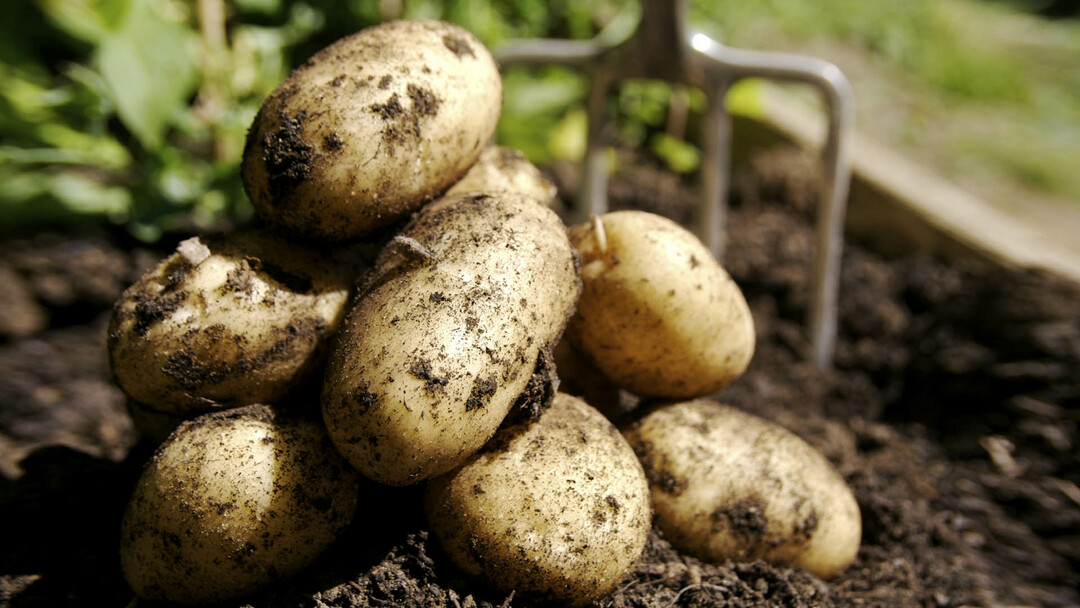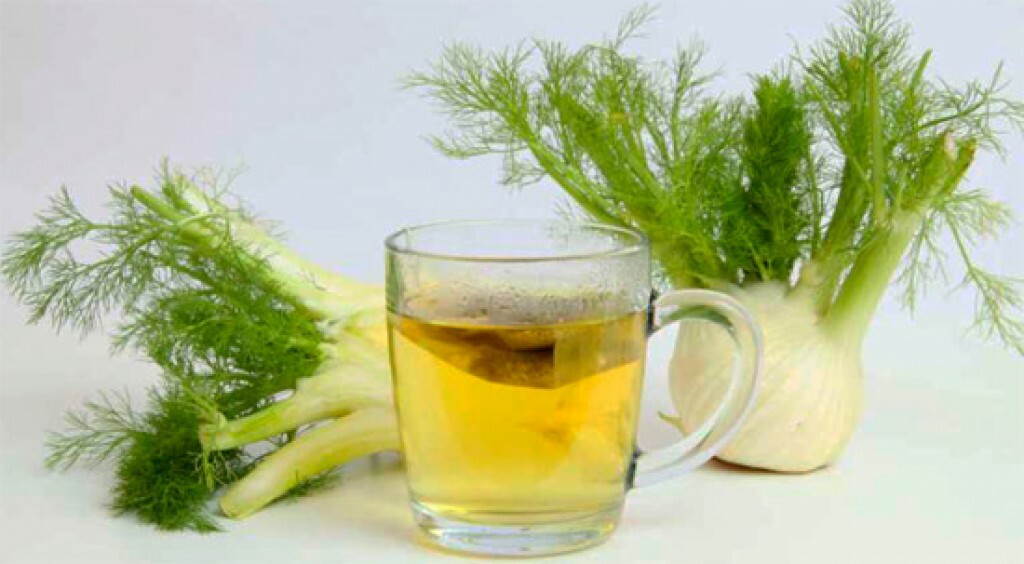The benefits of raspberries and possible contraindications
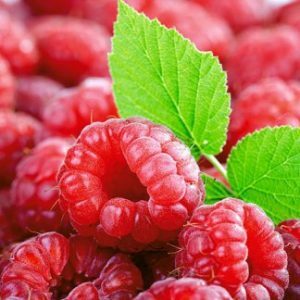
Since childhood we know that raspberries are good for health.It was offered to us by mothers and grandmothers, and many pediatricians in the treatment of colds and as prevention of ENT infections.
But how really valuable is this berry, what exactly are the useful properties of raspberries, and whether it be from any harm?You will learn all this from the article.
Important! More valuable will be that raspberry, which is grown on its own in the country or in the courtyard of a private house.Care for her unpretentious, the choice of varieties is huge, and the harvest can be collected, starting in May and until the late autumn.
raspberry Composition
Despite the fact that 85% of this fruit is water, it has a rich set of vitamins, micro- and macroelements various types.
Nutritional value of 100 g:
- Calories 46 kcal
- Proteins 8 g
- Fat 5g
- Carbohydrates 3 g
- Dietary Fiber 7 g
- Water 7g
is present in the berries andOther substances that determine the benefits of raspberries:
- up to 6% fiber;
- up to 1% tannins and essential oils;
- proteins and fats;
- vitamin combinations of groups C, B, E, PP, K;
- acid - malic, lemon, salicylic;
- calcium, potassium, magnesium;
- iron, zinc, boron, manganese;
- sulfur, selenium, sodium, copper;
- anthocyan, chlorine, phosphorus.
Valuable are not only berries themselves, useful properties are also found in the leaves.They contain minerals, sugars, vitamins, phytoncides.Especially a large amount in the leaves of vitamin C is half the daily norm of the daily volume for the health of an adult.Useful properties
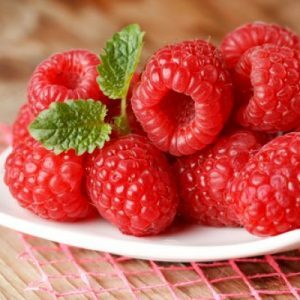 overestimate raspberry properties is difficult, because it has the broadest spectrum of beneficial effects.Raspberry is considered one of the best antioxidants.Therefore, it perfectly helps in the fight against aging of the body.These same substances in combination with macroelements and minerals improve the work of the intestines in the case of a stomach disorder, stop the pain syndrome.
overestimate raspberry properties is difficult, because it has the broadest spectrum of beneficial effects.Raspberry is considered one of the best antioxidants.Therefore, it perfectly helps in the fight against aging of the body.These same substances in combination with macroelements and minerals improve the work of the intestines in the case of a stomach disorder, stop the pain syndrome.
The presence of magnesium provides stabilization of the cardiac system.Vitamin K contributes to the normalization of blood clotting.Due to the large amount of vitamin C, raspberries contribute to the overall strengthening of immunity, accelerates the recovery process in beriberi.
The presence of beta-sitosterol prevents the accumulation of cholesterol in the vessels.Phytosterols, which are also present in raspberries, perform the prevention of atherosclerosis.In addition, raspberries can be used as an antiemetic, analgesic and anti-inflammatory agent.
Other useful properties of raspberries allow to recommend it:
- for the normalization of the kidneys;
- for the treatment of leukemia, anemia, diabetes;
- in the treatment of various gynecological diseases, including the restoration of elasticity and elasticity of the muscles of the uterus;
- in case of urinary system failure;
- when the skin fades and there are problems with acne, acne, pigmentation of the epidermis;
- as a component in the therapy of the ailments of the nervous system and for their prevention at constant stresses, breakdowns;
- for the treatment of joints - this is provided by the presence of salicylic acid.
An interesting fact. Decoction of raspberries helps to quickly eliminate all the symptoms of a hangover, promoted by natural fruit acids.
As mentioned above, not only berries, but also leaves of this shrub are valuable.In particular, decoctions from leaves give antipyretic, diaphoretic, expectorant effect.Also, broth is recommended by professional medics to improve the condition with blood pressure changes.
harm and contraindications
Despite the enormous amount of nutrients, raspberries can bring harm if not taken into account some of its characteristics and the health status of the individual. In particular, it is undesirable to use this berry if:
-
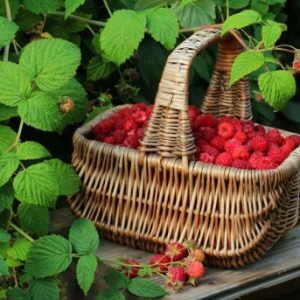 there are symptoms of stomach ulcers - contraindicated concentrated raspberry juice and tinctures on its basis;
there are symptoms of stomach ulcers - contraindicated concentrated raspberry juice and tinctures on its basis; - there are stones in the urinary tract;
- there are polyps in the nasal cavity;
- are accepted for the purpose of anti-coagulant pharmaceuticals;
- is diagnosed with gastritis or gout.
Important! It is not recommended to over-diligently use raspberries and women in the position after the 36th week of pregnancy, as well as during the entire gestation period of the child.Especially if the mother has a predisposition to allergic reactions.
Recipes of beauty
Raspberries are widely used in folk medicine and in home cosmetology.We offer you several proven recipes.
Broth for hair and skin
Prepare an infusion of half a liter of boiling water and 2 tablespoons of raspberry leaves.It takes 2 hours to get the desired concentration.Such a decoction is universal - it is suitable for gargling with laryngitis or sore throat, and for rinsing hair or washing your face with a problematic skin.
Face Mask
Thirty-minute face masks made from leaves and unsalted butter in a 1: 4 ratio are excellent for restoring the normal condition of the facial skin.Apply them 2 hours before bedtime.
Scrub for oily skin
The crushed oat and crimson berries are mixed in a 4: 3 ratio to prepare a natural scrub for the skin.To get a good effect, it is enough to apply a small amount of finished mass, lightly rub and rinse with cool water.
Honey and raspberry for dry skin
For dry skin, a mixture of liquid honey and mashed raspberries is suitable.Apply this mask for 15 minutes, which is more than enough to fully hydrate.At the end of the procedure, you can apply some olive oil to your skin with patting light movements.


